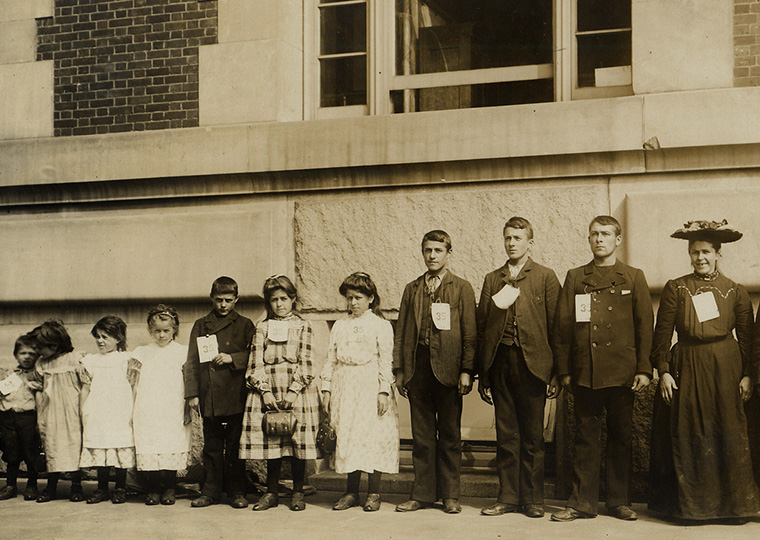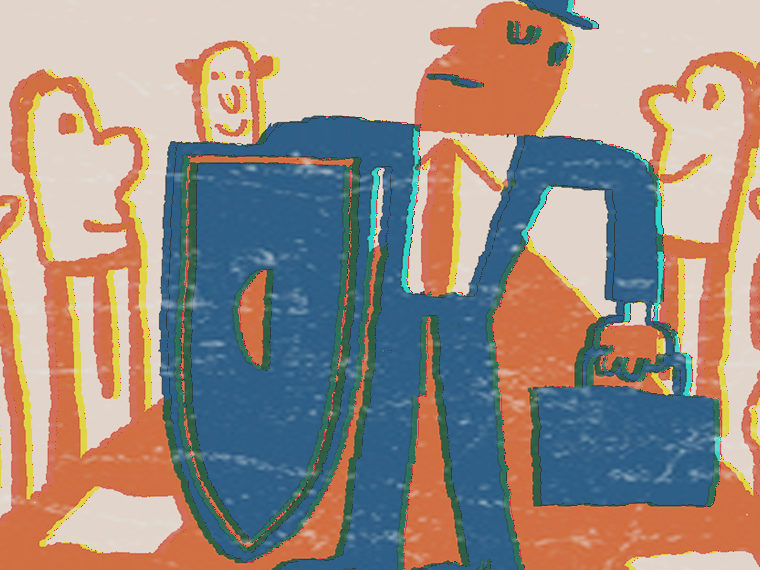Forced to nod in agreement, workers may embrace conspiracy theories, be less trusting
Mind-body dissonance — the flight attendant smiling when he’d like to throttle a misbehaving passenger; an office worker nodding in agreement when the boss is explaining yet another inane and time-consuming initiative — has long been known to exact a personal toll of exhaustion and reduced job satisfaction. It also leads to a lot of bad attitudes.
Research by INSEAD’s Li Huang and UCLA Anderson’s Jennifer Whitson, published in Organization Behavior and Human Decision Processes, suggests there is a business cost as well.
Opt In to the Review Monthly Email Update.
In a series of experiments, Huang and Whitson establish that when mind-body dissonance is unleashed in a workplace setting it can lead to a thought process more open to conspiracy theories and superstitions, mindsets not associated with optimal organizational function.
Soul destroying — and bad for the bottom line?
“When organizational expectations create mind-body dissonance, the costs go far beyond the resulting stress individual employees have to shoulder,” Huang and Whitson write. “These contradictory mind and body states could jeopardize some of the very processes central to the successful functioning of organizations, that of the cognitive sense-making necessary for establishing trust, making realistic and well-informed decisions, and avoiding nonoptimal outcomes.”
The personal impact of mind-body dissonance on workers has been a previous topic of exploration for Huang. Whitson’s prior research has established that when we feel out of control we are more susceptible to “illusory pattern perception,” a phenomenon where people connect dots that there is no rationale for connecting such as believing in conspiracy theories and superstitions. This paper combines those areas of inquiry.
Facial exercises and reliving memories
In one experiment, 550 participants were recruited on Amazon’s Mechanical Turk, a crowdsourcing platform for remote and contract workers. Without explicitly being asked to smile or frown, the participants were instructed to perform a complex task with their face that caused their muscles to approximate either a smile or frown. Then they were instructed to relive either a happy or sad memory.
This produced four groups, the first two with mind-body congruence, the latter two with mind-body dissonance:
- Happy face muscles/happy memory
- Sad face muscles/sad memory
- Happy face muscles/sad memory
- Sad face muscles/happy memory
Checking mood, the researchers found happy memory subjects generally happier and sad memory subjects sadder.
All participants were then presented with a workplace scenario that allowed for the possibility of conspiratorial thinking. They were asked to imagine they were a partner at a top-notch consulting firm with one main competitor, and that their competitor had recently snatched away two big clients. Thickening the plot was the fact that the client heist had occurred soon after a few of the competitor’s consultants had been hired by the participant’s firm. On a scale of 1 (none) to 5 (a great deal) participants were asked to weigh in on whether they thought there was a connection between the new hires and losing the two clients.
Subjects whose physical priming (smile or frown) was in sync with their state of mind were less likely to see a conspiracy than those who’d been coaxed into mind-body dissonance.
To get at trust, participants were asked to imagine they had valuable data that could help their consulting team, which had been slogging away on a project for six months. The one potential complication was that one of the new hires from the competitor had been added to the team. With their valuable information, participants could choose to:
- Share it only with the team leader
- Share it with the team leader and a few key stakeholders (not including the new hire)
- Share it with everyone
Participants coaxed into a state of mind-body dissonance were less trusting and shared key information less freely with their team, whether they were in the happy/sad or sad/happy group.
Very Superstitious?
A separate experiment used more than 350 French college students to explore the extent to which mind-body dissonance might compromise rational and cost-effective decision-making.
Participants were told they had the job of scheduling a client meeting. One option was to have the meeting on Friday, Nov., 13, when the client would be in town. Or they could opt to avoid that “unlucky” day and opt for the less-superstitiously-charged day of Friday, Nov. 20. But that would entail three employees needing to travel to see the client, which would cost the firm three business class airline tickets and two nights of three separate hotel rooms.
Participants who were primed to experience mind-body dissonance (the same exercise as the previous experiment) were more likely to opt to spend money to avoid meeting on Friday the 13th.
Corporate managements seem either oblivious or indifferent to the emotional toll on employees who are forced to feign enthusiasm and positivity when they’re feeling the opposite. Perhaps a warning that workers put into a state of mind-body dissonance could, in their personal suffering, also be less productive will help focus executive attention on the phenomenon.
Featured Faculty
-
Jennifer Whitson
Assistant Professor of Management and Organizations
About the Research
Huang, L., Whitson, J. (2020). Organization costs of compensating for mind-body dissonance through conspiracies and superstitions. Organization Behavior and Human Decision Process, 156, 1-12. doi: 10.1016/j.obhdp.2019.09.006






